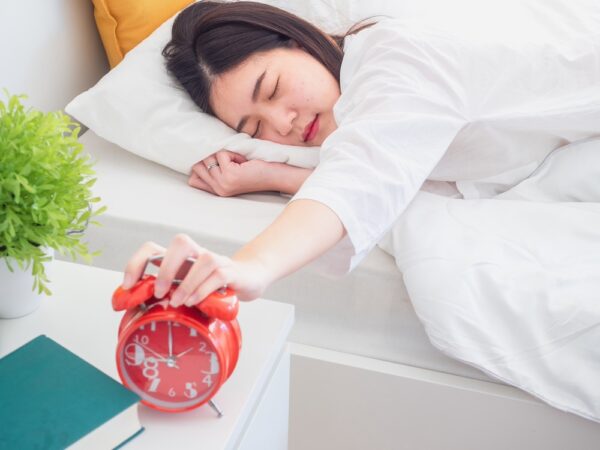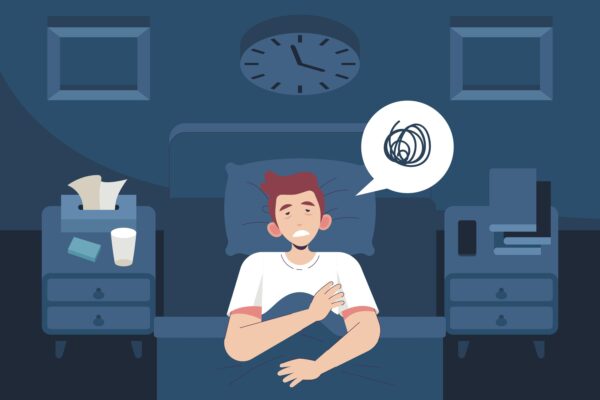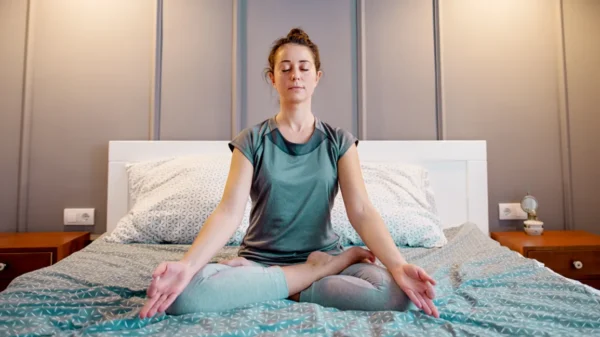Trendy Lifestyle Hacks
Is 6 Hours of Sleep Enough? Here’s What Experts Say
Sleep is vital for overall health, affecting everything from cognitive function to physical well-being. While six hours of sleep is common for many busy adults, experts generally recommend seven to nine hours per night for optimal health. Regularly getting only six hours may not be enough for most people, leading to impaired memory, mood swings, weakened immune function, and an increased risk of chronic diseases like heart disease and diabetes.
While a few may function well on six hours due to unique genetic factors, most require more sleep to avoid accumulating “sleep debt,” which can have long-term health consequences. Here, we’ll explore expert insights on why getting sufficient sleep matters and how to determine if you’re meeting your personal sleep needs.
Why Sleep is Essential for Health and Well-Being

Sleep is crucial for maintaining both physical and mental health, providing the body and mind time to repair, grow, and rejuvenate. Physically, sleep supports the immune system, regulates hormones, and aids in tissue repair, helping to prevent chronic conditions like heart disease, diabetes, and obesity. Without adequate sleep, these vital functions are disrupted, increasing the risk of health issues.
Mentally, sleep enhances memory, learning, and decision-making while helping to regulate mood and manage stress. Sleep deprivation can impair cognitive functions and lead to anxiety, depression, and poor daily performance. Inadequate sleep also affects concentration and reaction time, increasing the risk of accidents. Thus, prioritizing quality sleep is essential for physical health, cognitive clarity, and emotional balance, forming the foundation of a healthy lifestyle.
Is 6 Hours of Sleep Sufficient?

For most adults, six hours of sleep is generally not enough to maintain optimal health and well-being. While individual sleep needs can vary, experts recommend seven to nine hours of sleep per night for most people to support bodily functions and cognitive health. Getting only six hours of sleep on a regular basis can lead to sleep deprivation, which affects memory, concentration, mood, and decision-making abilities. Over time, insufficient sleep can also increase the risk of chronic health conditions like heart disease, diabetes, obesity, and weakened immune function.
However, some individuals may feel they function well on six hours of sleep due to unique genetic factors that allow them to be more efficient sleepers. But for the majority, consistently getting less than seven hours of sleep can result in “sleep debt,” where the negative effects accumulate over time, impacting both short-term and long-term health. It’s important to listen to your body and adjust your sleep habits to ensure you are getting enough rest to support both physical and mental health.
Signs and symptoms of sleep deprivation include:
Persistent fatigue
Excessive daytime drowsiness
Mood disturbances
Frequent headaches
Delayed reaction times
Difficulty concentrating and remembering information
Strategies for Achieving Adequate Sleep
Achieving adequate sleep involves adopting habits and practices that promote restful and uninterrupted sleep. Here are key strategies to help ensure you get the amount of sleep you need:
Establish a Consistent Sleep Schedule

Going to bed and waking up at the same time every day helps regulate your body’s internal clock, making it easier to fall asleep and wake up naturally. Consistency reinforces your sleep-wake cycle, improving sleep quality over time.
Create a Relaxing Bedtime Routine

Engage in calming activities before bed, such as reading, taking a warm bath, or practicing relaxation techniques. This signals to your body that it’s time to wind down and prepares your mind and body for restful sleep.
Optimize Your Sleep Environment

Make your bedroom conducive to sleep by keeping it cool, dark, and quiet. Invest in a comfortable mattress and pillows, and eliminate sources of noise and light that can disrupt sleep.
Limit Exposure to Screens
Reduce exposure to screens from phones, tablets, and computers at least an hour before bedtime. The blue light emitted by screens can interfere with the production of melatonin, a hormone that regulates sleep.
Watch Your Diet and Caffeine Intake

Avoid large meals, caffeine, and alcohol close to bedtime, as these can disrupt your ability to fall and stay asleep. Opt for light snacks if you’re hungry before bed.
Exercise Regularly
Regular physical activity can promote better sleep, but try to complete any vigorous exercise at least a few hours before bedtime to avoid being too energized to sleep.
Manage Stress
Practice stress-reducing techniques such as mindfulness, meditation, or deep breathing exercises. High stress levels can interfere with your ability to fall asleep and maintain restful sleep.
The Takeaway
To achieve restful and adequate sleep, it’s essential to adopt consistent habits and practices. Maintaining a regular sleep schedule, creating a calming bedtime routine, optimizing your sleep environment, limiting screen time before bed, managing your diet and caffeine intake, incorporating regular exercise, and effectively managing stress are all crucial steps. By implementing these strategies, you can improve your sleep quality, enhance overall health, and support well-being. Prioritizing these practices helps ensure you get the restorative rest necessary for both physical and mental vitality.


